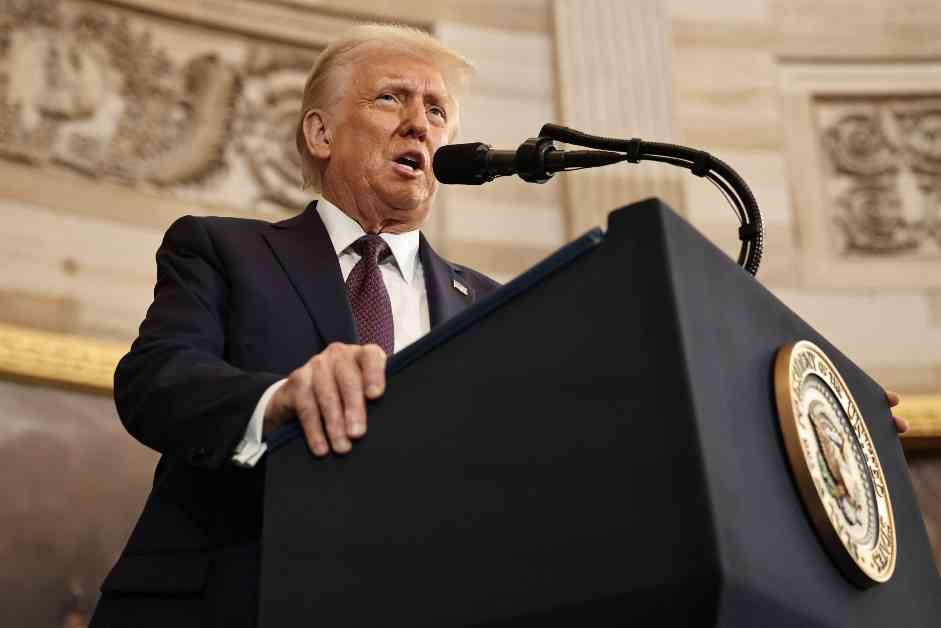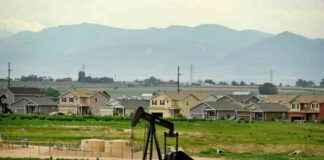**Trump’s Energy Emergency Declaration Raises Climate Concerns**
In a bold move that has sent shockwaves through the environmental community, U.S. President Donald Trump declared a “national energy emergency” shortly after his inauguration for his second term. This declaration comes as part of a series of more than two dozen executive orders that aim to reshape U.S. policy across various sectors, including immigration and national security.
**Energy Emergency Unveiled**
During his inauguration speech, Trump made it clear that his administration’s focus will be on unlocking the vast reserves of oil and gas that lie beneath American soil. He emphasized a vision of America as a manufacturing powerhouse, driven by the abundance of what he calls “liquid gold.”
The declaration of a “national energy emergency” marks a significant departure from the climate-centric policies of the previous administration. Despite this, experts have questioned the necessity of such a declaration, given that the U.S. is already a global leader in oil and gas production, with no apparent signs of energy scarcity.
**Expert Opinions and Legal Implications**
Michael Gerrard, a climate change law expert, called the emergency order largely performative, pointing out that the U.S. currently faces no significant energy shortages. Trump’s nominee for Interior secretary, Doug Burgum, highlighted concerns about the stability of the electricity grid, particularly in light of increasing demands from tech companies.
While Trump’s executive orders have faced backlash from environmentalists, who view them as a step backward in the fight against climate change, fossil fuel companies have welcomed the administration’s support for oil and gas production. Legal challenges and regulatory hurdles may still pose obstacles to the full implementation of Trump’s energy policies.
**Global Impact and Climate Activism**
The ripple effects of Trump’s energy policies extend beyond U.S. borders, with the administration also announcing plans to withdraw from international agreements like the Paris Climate Accord. This decision has raised concerns about the potential influence on other countries’ climate goals.
In the midst of these developments, climate-related events continue to unfold around the world, from historic snowfall in unexpected regions to the deportation threats faced by climate activists like Muhammad Zain Ul Haq in Canada. The interconnectedness of these issues highlights the urgency of addressing climate change on a global scale.
In conclusion, Trump’s energy emergency declaration has ignited a firestorm of debate and speculation about its implications for the environment, energy security, and international relations. As the world grapples with the ongoing climate crisis, the decisions made today will shape the future of our planet for generations to come.
—
**Donations and Transparency**
We at Inside Climate News are dedicated to providing free, unbiased, and impactful reporting on climate and environmental issues. Our mission is made possible by the generous support of readers like you. Your donations help fund our work, allowing us to reach a wider audience and continue our vital reporting on the pressing challenges facing our planet.
As a nonprofit organization, we are committed to transparency and accountability in everything we do. We strive to bring you the most comprehensive and accurate news coverage on climate change and its effects on our world. Your contributions make a real difference in our ability to inform and educate the public about these critical issues.
Thank you for supporting our work and helping us make a positive impact on the future of our planet. Together, we can create a more sustainable and resilient world for all.














